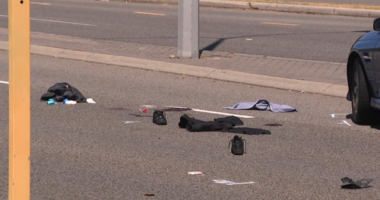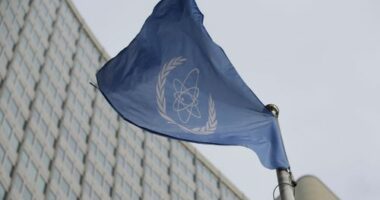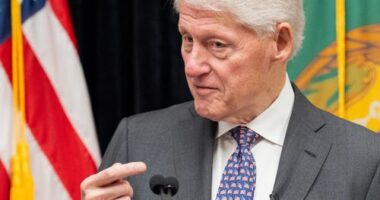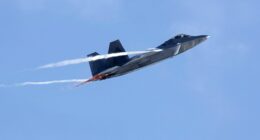Share this @internewscast.com
Measles has been rising globally in recent years. In 2023, there were an estimated 10.3 million cases worldwide, marking a 20 percent increase from 2022. Outbreaks have been reported across the globe, including in the United States, Europe, and the Western Pacific region, which encompasses Australia. For instance, Vietnam has reportedly experienced thousands of cases in 2024 and 2025.

Source: The Conversation / WHO
Measles most commonly affects children and is preventable with vaccination, given in Australia in two doses at 12 and 18 months old. But in light of current outbreaks globally, is there a case for reviewing the timing of measles vaccinations?
Some measles basics
Measles can have serious health consequences, such as in the brain and the immune system, years after the infection.
Low and declining vaccine coverage, especially since the COVID pandemic, is driving global outbreaks.
When are children vaccinated against measles?
In Australia, 77 cases of measles have been recorded in the first five months of 2025, compared to 57 cases in all of 2024. The majority of these cases in Australia are linked to international travel, affecting people returning from abroad or spreading locally through contact with infected travelers.
Research suggests that administering the measles vaccine to infants younger than 8.5 months may lead to a quicker decline in antibody response. This decline could be attributed to interference with maternal antibodies, though researchers are still investigating the reasons. For babies at higher risk of contracting measles, an additional early dose is available. In Australia, infants as young as six months are recommended to receive this early dose during outbreaks or if they are traveling to high-risk areas overseas.
A new study looking at measles antibodies in babies
This study suggests maternal antibodies to measles decline much earlier than previously thought. It raises the question of whether the first dose of measles vaccine is given too late to maximise infants’ protection, especially when there’s a lot of measles around.
Should we bring the measles vaccine forward in Australia?
Although this is lower than the optimal 95 per cent, the overall risk of measles surging in Australia is relatively low.

In Australia, children are routinely given the MMR vaccine at 12 months and the MMRV vaccine at 18 months. Source: AP / Mary Conlon
Nonetheless, there may be a case for broadening the age at which an early extra dose of the measles vaccine can be given to children at higher risk. In New Zealand, infants as young as four months can receive a measles vaccine before travelling to an endemic country.
Adding an extra dose to the schedule would be costly and logistically difficult. Lowering the age for the first dose may have some advantages in certain settings, and doesn’t pose any safety concerns, but further evidence would be required to support this change. In particular, research is needed to ensure it wouldn’t negatively affect the longer-term protection that vaccination offers from measles.











